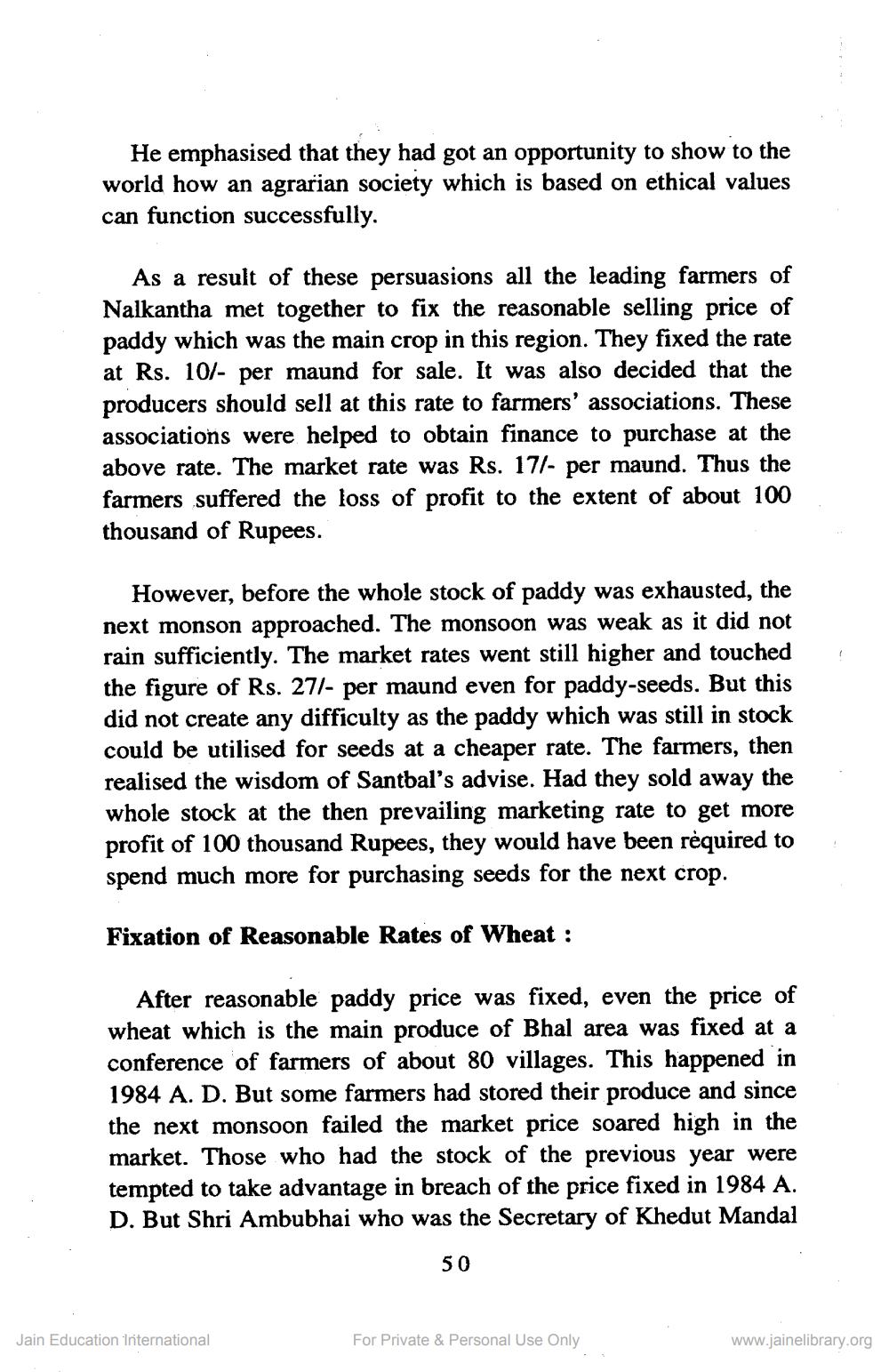________________
He emphasised that they had got an opportunity to show to the world how an agrarian society which is based on ethical values can function successfully.
As a result of these persuasions all the leading farmers of Nalkantha met together to fix the reasonable selling price of paddy which was the main crop in this region. They fixed the rate at Rs. 10/- per maund for sale. It was also decided that the producers should sell at this rate to farmers' associations. These associations were helped to obtain finance to purchase at the above rate. The market rate was Rs. 17/- per maund. Thus the farmers suffered the loss of profit to the extent of about 100 thousand of Rupees.
However, before the whole stock of paddy was exhausted, the next monson approached. The monsoon was weak as it did not rain sufficiently. The market rates went still higher and touched the figure of Rs. 27/- per maund even for paddy-seeds. But this did not create any difficulty as the paddy which was still in stock could be utilised for seeds at a cheaper rate. The farmers, then realised the wisdom of Santbal's advise. Had they sold away the whole stock at the then prevailing marketing rate to get more profit of 100 thousand Rupees, they would have been required to spend much more for purchasing seeds for the next crop.
Fixation of Reasonable Rates of Wheat :
After reasonable paddy price was fixed, even the price of wheat which is the main produce of Bhal area was fixed at a conference of farmers of about 80 villages. This happened in 1984 A. D. But some farmers had stored their produce and since the next monsoon failed the market price soared high in the market. Those who had the stock of the previous year were tempted to take advantage in breach of the price fixed in 1984 A. D. But Shri Ambubhai who was the Secretary of Khedut Mandal
50
Jain Education International
For Private & Personal Use Only
www.jainelibrary.org




